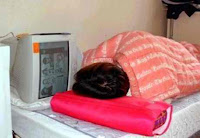Aspergers and the "Avoidant Personality" Type

Children, teens and adults with Aspergers (high functioning autism) vary in personality types. One type of personality is called “avoidant.” Avoidant personality is characterized by a pattern of social inhibition, feelings of inadequacy, and hypersensitivity to negative evaluation. This type of "Aspie" is often described as being extremely shy, inhibited in new situations, and fearful of disapproval and social rejection. Avoidant personality becomes a major component of an Aspie’s overall character and a central theme in how he relates to others. Avoidant Personality in Aspergers Adults: Case Study— A 30-year-old computer programmer with Aspergers presents for treatment at the urging of his new girlfriend whom he met online. He describes himself as being painfully shy since childhood. There is no history of language delay, odd interests, or unawareness of social cues. On the contrary, he tends to over-interpret cues, believing that he is being negatively viewed by ...



